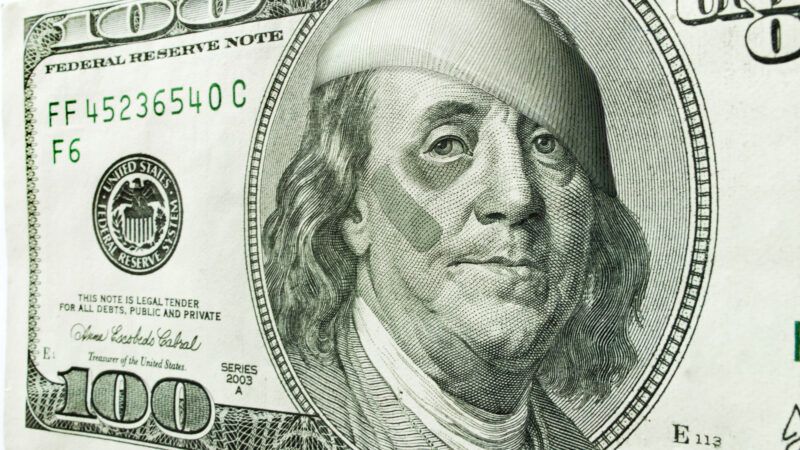Price Controls Are the Worst Possible Solution to Inflation
Addressing a distortion of the market with another distortion of the market will only make the problem worse.

Nearly nine out of 10 Americans are worried about inflation, according to one recent survey. And they're right to be concerned: When inflation outpaces growth in wages, your money is worth less. As with any political issue, opinions vary on what can be done about inflation, which hit its highest level since 1982 in November. But some suggestions are simply not worth trying.
In an article published in The Guardian on Wednesday, economics professor Isabella Weber made the case that World War II–style price controls are "a powerful weapon to fight inflation." Weber works at the University of Massachusetts Amherst, home to one of the few Marxist economics departments in the country.
Weber posits that after World War II ended, President Harry Truman lifted the wartime price controls, resulting in "inflation and a boom-bust cycle." At the time, economists had advised him to retain some "strategic" limits on certain prices, arguing that "as long as bottlenecks made it impossible for supply to meet demand, price controls for important goods should be continued to prevent prices from shooting up." Weber concludes that as the pandemic continues to cause supply chain issues and inflation remains high, the U.S. should impose such strategic "targeted" price controls in order to allow supply to catch up with demand.
Of course, what this ignores are the actual effects of the price controls during World War II. The agency tasked with setting prices, the Office of Price Administration, was woefully unprepared to respond to the dynamic changes in supply and demand. It tried to impose a one-size-fits-all plan on pricing food and failed to account for the myriad dietary needs of various regions and religious or ethnic groups. Black markets sprung up to satisfy the demand that legal markets were not allowed to meet.
Price controls have a tendency to create shortages and surpluses regardless of their effects on inflation. When a price for a good is set too high, nobody can afford it, creating a surplus. And when a price for a good is set too low, people are incentivized to overbuy and hoard, and the supply is depleted. You do not have to look to far-flung autocracies like Venezuela to find examples: All across the U.S., price controls lead to astronomical health care costs and a scarcity of rental homes.
Figures on the political right have, unsurprisingly, criticized Weber's defense of such a top-down pricing mandate. But her position is so meritless that it was also critiqued by some on the political left, including Nobel Prize–winning economist Paul Krugman (yes, that Paul Krugman). In a Twitter thread (since deleted), Krugman called Weber's argument "truly stupid."
Former Bloomberg columnist and finance professor Noah Smith also blogged about the issue over the weekend, taking the position that price controls would be the exact wrong response to current inflation. Smith posits that price controls would really only be appropriate in a situation where prices were rising because of widespread monopolies, rather than our current spending and supply chain issues. He also refers to a study showing that when price controls were instituted in 1971 to fight inflation, the ending of the controls in 1974 caused a burst of "catch-up" inflation.
The massive COVID-19 spending bills certainly seem to have driven up the inflation rate. Hopefully some of the worst effects will dissipate once the supply chain stabilizes and manufacturers are able to catch up with demand. But setting artificial caps on prices would only exacerbate the problem.


Show Comments (61)